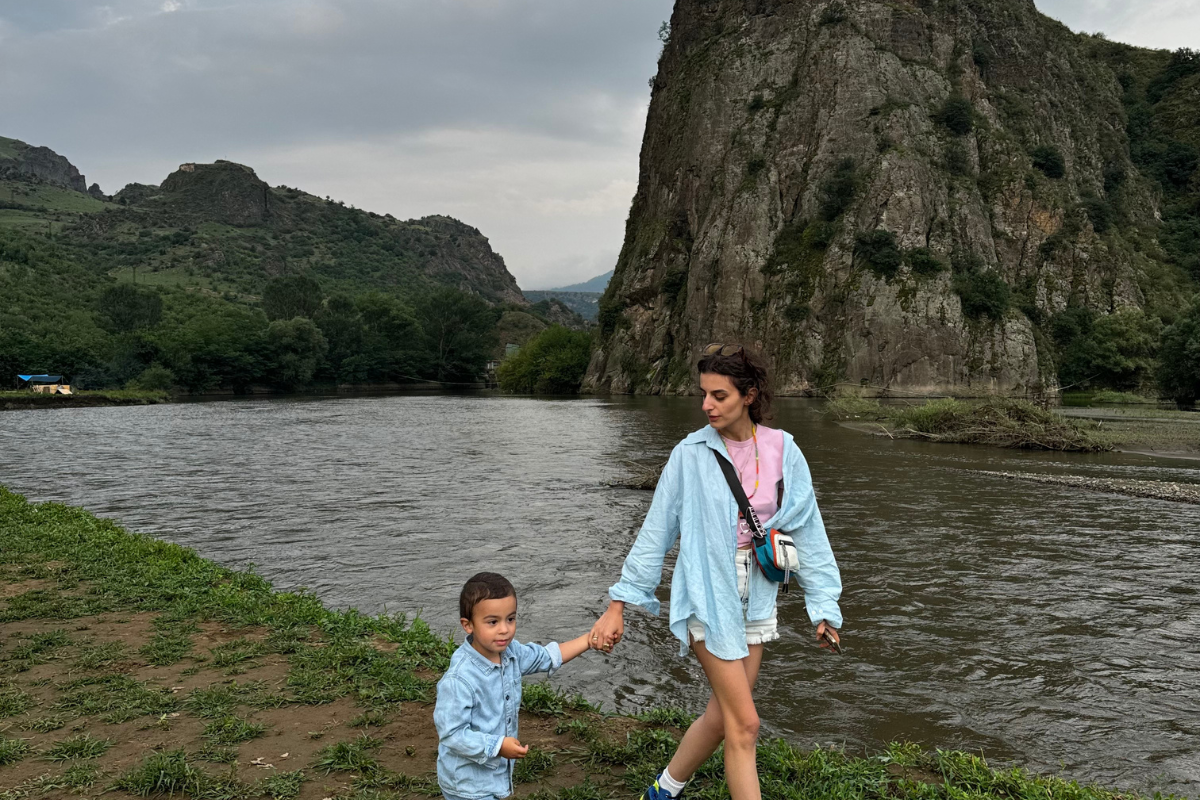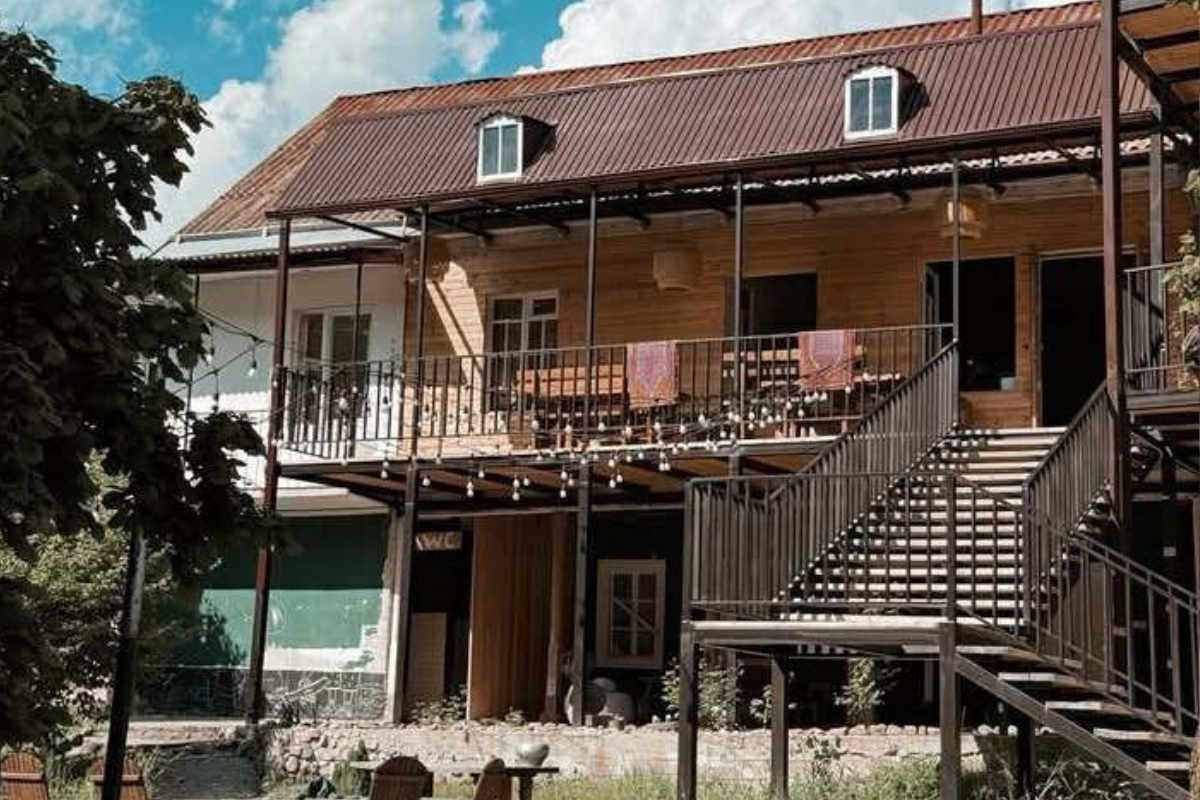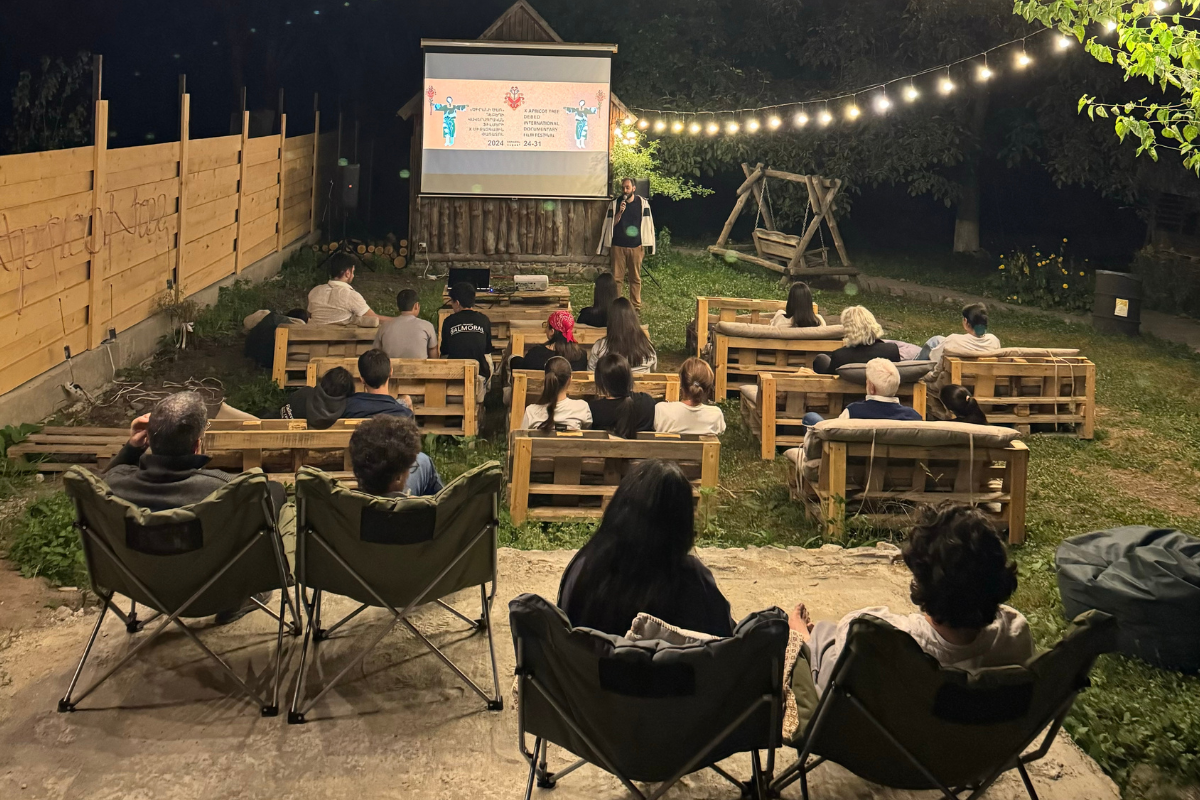Publications
-webp(85)-o(png).webp?token=b5fc5b57ab9121b200049b8ac10d8408)
Meet Svetlana
Most repatriates look for work and new opportunities only in the capital, knowing that life in Armenia is concentrated in Yerevan, and it is easier to start a new life there. Today’s story is about a young woman who repatriated directly to Lori and, together with her husband, began creating work opportunities and changes for her family in the region.
Svetlana Muradyan, originally from Yerevan, is a journalist by profession. In recent years, she has also been engaged in marketing and has already worked with several Lori-based organizations as a marketer.
“Throughout all stages of my life there were frequent changes: I changed schools, universities, and the fields in which I wanted to realize myself. I worked in television, in films, wrote prose, and then my colleagues decided to ‘set me on the path’ of family life and introduced me to my future husband,” the heroine begins her story.
Spontaneously – to the Registry Office and to Moscow
Svetlana met her husband Hayk in 2020. He was born in Armenia but had lived in Moscow for many years, developing his construction business.
“Everything in our life together was spontaneous, although by nature of my work I like to plan everything in advance. We also went to the registry office spontaneously, got married, and moved to Moscow. Before that, I had never been to Russia and, to be honest, had no fondness for that country. When I later learned that I was pregnant, my husband and I decided that our son should be born in Armenia.”
Returning to the Homeland: In Search of a Dream Home
Thus, not only Svetlana returned to Armenia, but also her husband Hayk, who had been living between two countries. At that time, he also began dealing with the sale of his business in Russia: the decision to return to the homeland was final and irreversible. While thinking about what the family would do in Armenia, Svetlana shared her dream with her husband – to buy a small house in the forest and live there. Hayk supported his wife’s desire: they began searching for their dream home and making plans for the future.

“After our son was born, we came to Lori for a vacation, and during all our trips we were looking for that special corner. I am not from Lori, but my grandmother, whose name I carry, was born in Kirovakan. And magically, we found our dream home in the village of Debed, which is located not far from Vanadzor. This was the first house in the village, where a couple of teachers lived and often hosted famous people. We bought the house, and later the adjacent land that was put up for sale. At first, the house hosted guests as a restaurant, and then it turned into a guesthouse. It was small: our family lived in one room, while the other two were for guests,” Svetlana continues.
“Debatun” – From Challenges to Success
The young couple wanted very much to preserve the home’s atmosphere, make as few changes as possible, and keep the scent of a grandmother’s house they felt during their first visit. It was also important to find a meaningful name for the house: from the play on words “dba tun” (in Lori dialect – “to the house”) came the name “Debatun.”
“At first, we didn’t view this as a business project, because all the important events of our family’s life happened here; we even got married in Lori, in Akhtala. But in the process, we realized the house’s potential and that it needed to be developed. On the purchased land we started building a new structure, but faced difficulties. It is very difficult to build in Armenia, especially in the regions, where there is no professional workforce. To this day, we face many challenges. From the outside, life in the village seems romantic. I don’t want to discourage anyone’s dream – I was once one of those dreamers myself – but to be realistic, it is very difficult, from kindergarten issues to broader questions. Every day we drive our son to kindergarten in Vanadzor because there is no infrastructure in the village. And speaking not only on my behalf but also on behalf of the community: Debed is often mentioned in conversations as a ‘smart village,’ but this village doesn’t even have water – it is only now being installed. We were lucky because our house is right next to a spring. But if a village has no water, what kind of business projects can we talk about?! I don’t look at things only from my own perspective – I also want to do something for the community, create jobs, but many circumstances hinder the development of this community,” the heroine shares her thoughts.

Despite all the difficulties, Svetlana and her husband managed to create six jobs at Debatun, including a displaced family from Artsakh. The guesthouse has the capacity and need to expand its staff, but the village faces a shortage of workforce.
Activities of the “Debatun” Platform
Based at Debatun, for two years now, a platform has also been operating, serving as a space for communication, knowledge, and skills. The platform organizes cultural and educational projects, with the main audience being local residents. For the third year now, the International Documentary Film Festival “Apricot Tree” has been held here, which had previously been organized for several years in the village of Ujan, Aragatsotn region.

“Initially, the platform was created for the women of this village; I wanted to help them protect their rights and increase their awareness. There are many family problems in villages, so at our events and trainings not only young women participate, but also their mothers-in-law. Communicating with men in the regions is more difficult, but I would like to try with them too, though I don’t know if it will work. Just as I had fears when I started all this, so do the locals, but people have started to change. They come, communicate, learn about new opportunities – this is the path to broadening narrow mindsets,” says Svetlana.
Respecting the Image of the Village
Speaking about the trend of moving from the city to the village, she notes that it is very important to remember that the village already has its own identity, and newcomers have an obligation to respect it and not harm it with their activities: “People arrive bringing novelty from the city and think that it is the right thing. No, it is not always right, because by doing so we change the image of the village, but it is important to preserve it, because this is what makes the village attractive to visitors. It is important to bring here your network, your ideas that do not destroy the authenticity of the place. In the end, one must be honest in their love for the village and its people.”
By Nare Bejanyan
Translation via AI based on the original article in Russian: «Быть честной в любви к селу».
-
News
-webp(85)-o(png).webp?token=1c587df7df6ef4a8e220e5ea824554b9) 09.01.2026Short-Term Return: How Diaspora Armenians Can Contribute Without Moving Fully
09.01.2026Short-Term Return: How Diaspora Armenians Can Contribute Without Moving Fully -
News
-webp(85)-o(png).webp?token=6db31f95769d9cf05b6c8b6bb0bfbd88) 23.12.2025Mapping the Armenian Diaspora: Who They Are, Where They Are, and What They Want
23.12.2025Mapping the Armenian Diaspora: Who They Are, Where They Are, and What They Want

-webp(85)-o(png).webp?token=352fe0eaefc29d0ad1f8d09946209fe8)
-webp(85)-o(png).webp?token=b0b8f44ff3db826c91e2f90062960e31)